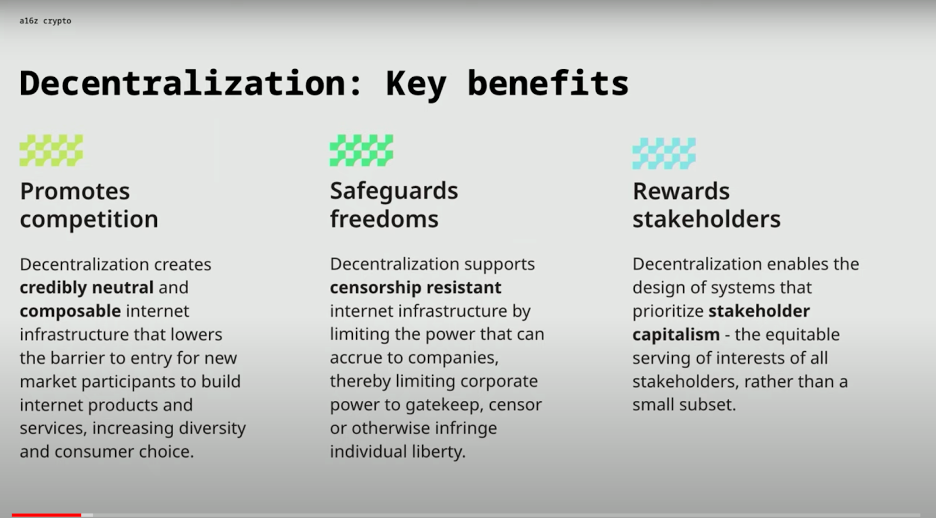Why decentralization matters, for builders
What’s different about building in web3 compared to building a typical startup? And why does decentralization matter? Decentralization matters because it’s the tool that allows us to democratize the internet by turning web3 systems into public infrastructure. This is a distinctly different model from the current internet, which is built around networks that are accruing benefits only to the companies that run them.
I list some key benefits of decentralization below.
Decentralization promotes competition
If you’re able to create credibly neutral and composable internet infrastructure, people will be able to build internet businesses and services on top of it with a lower barrier to entry, which should result in more diversity in the kind of digital services offerings people can bring to market.
Decentralization protects freedoms
This is a little bit of a hot political topic, but one of the key challenges we have right now is that much of the internet is built on centralized networks that are run by corporations — giving those corporations enormous power to censor and gatekeep and to infringe on personal liberties.
So one key idea behind decentralized internet infrastructure is less power accruing to centralized corporate entities, which should result in more freedom for users. A great example of this is Twitter, where after Elon took over we learned that content moderation there had probably not been as fair or transparent as people would have expected.
Decentralization creates systems that more equitably reward all stakeholders
Currently, with corporate networks like Twitter and Facebook and Instagram, all the value that is generated by those networks accrues to their stockholders, rather than the people participating and creating value within the ecosystem.

Decentralization could appear at first glance to be counterproductive for startups – because it necessitates that they seed a playing field for other entrepreneurs to compete with them. But it can also be the more economically rational decision, because by delivering the benefits discussed here, decentralization can also facilitate faster and stronger network growth. So even though startups pursuing decentralization give up ownership of an entire pie… they may end up with a slice of a much larger pie.
Editor’s note: This is the first part of a short two-part series that covers decentralization at a high level, based on this talk at CSX, a16z crypto’s startup accelerator. Part two is here; for more deep dives on some of the concepts, go here.